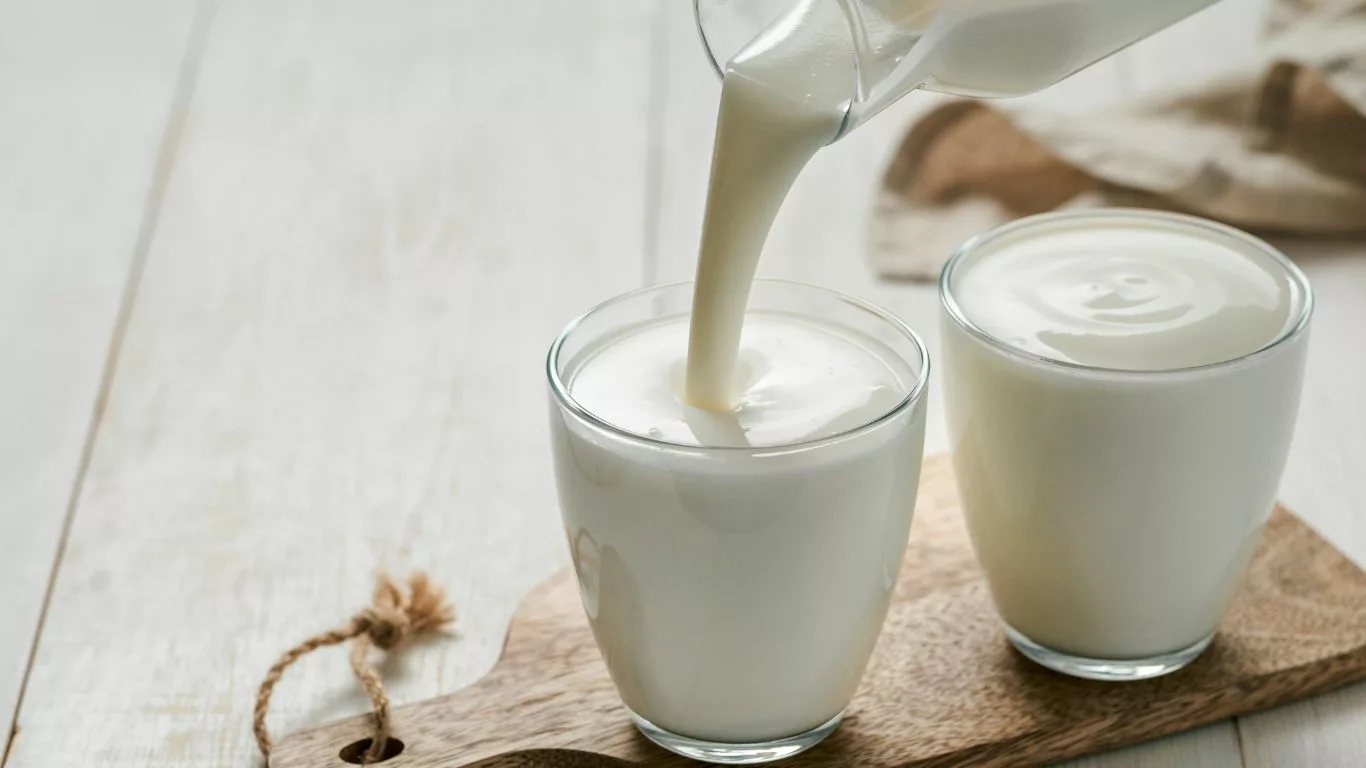Almond Milk for GERD Relief: Is It the Right Choice for You?
Almond milk has exploded in popularity over the last decade, especially among those of us who are sensitive to dairy or looking for plant-based alternatives. But if you’re dealing with GERD (Gastroesophageal Reflux Disease) like I am, then you’ve probably found yourself standing in the grocery aisle, wondering: “Is almond milk going to soothe my reflux—or make it worse?” I used to ask the same thing every time I reached for the carton. Let’s dive into the real deal behind almond milk and acid reflux, based on science, expert opinion, and a little bit of lived experience.
Why So Many People with GERD Swear by Almond Milk

First off, almond milk is naturally low in acid. That alone gives it a head start in being gentler on the stomach than dairy or other plant-based milks like soy. I switched from cow’s milk after realizing it wasn’t just the lactose giving me trouble—it was the way my stomach felt like it was in a boxing match after breakfast.
Here’s what makes almond milk a top pick for many GERD sufferers:
- Alkaline-forming properties: Almonds have a naturally alkaline pH, and while the milk isn’t quite as alkaline as raw almonds, it’s still a low-acid option.
- Dairy-free: If your reflux flares up after cheese or milk, almond milk might offer relief simply by removing those common triggers.
- Light consistency: It’s less fatty than whole dairy, which can slow digestion and lead to more reflux symptoms.
And it’s not just anecdotal. Mayo Clinic confirms that lower-fat, non-dairy alternatives may be easier on digestion, especially for reflux-prone folks.
But Not All Almond Milk Is Created Equal

Here’s the kicker: some almond milk brands might actually make your reflux worse. Sounds crazy, right? But it all comes down to what’s inside the carton.
Watch Out for These Common Additives
Not all almond milk is clean and simple. Some commercial brands add thickeners, gums, sugars, or even acidic preservatives that can irritate your gut lining.
- Gellan gum and carrageenan: Linked to digestive upset in sensitive individuals
- Added sugars: Can ferment in your gut and contribute to bloating and pressure that may trigger reflux
- Natural flavors: These are sometimes anything but “natural”—and could include acidic or spicy elements
When I switched to unsweetened, organic almond milk with minimal ingredients—literally just almonds and water—my reflux calmed down dramatically. No joke. It’s also worth noting that many people report symptoms improving when they cut out emulsifiers entirely.
How Almond Milk Fits Into a GERD-Friendly Diet

Integrating almond milk into your meals can be a total game-changer. Here’s how I make it work in my own routine without inviting heartburn to the table:
Morning Rituals Without Regret
I swapped my traditional latte for an almond milk matcha or a low-acid herbal tea. And cereal? I go for oatmeal made with warm almond milk and a sliced banana (yes, bananas are low-acid—win-win!).
Smart Smoothie Combos
Blending almond milk with low-acid fruits like melon or papaya, plus chia seeds for fiber, makes for a reflux-friendly breakfast or afternoon snack. Want some ideas? Check out these acid reflux-friendly smoothie recipes.
Cooking & Baking Swaps
Wherever a recipe calls for dairy, almond milk is my default. From sauces to baked goods, it usually works just fine—especially if you’re making GERD-safe meals that still taste amazing. Here are some ideas for acid reflux-safe baking too.
When Almond Milk Might Not Work for You

For a small percentage of people, even almond milk might not be a great fit. If you’ve got a nut allergy, obviously, it’s off the table. But sometimes it’s about how your body processes fat—even healthy fats from almonds.
Also, some of us might have an underlying sensitivity to almonds themselves, which can show up as bloating, discomfort, or a heavy feeling after eating. If that’s the case, alternatives like oat milk or rice milk (both low-acid choices) might be worth exploring instead. Here’s a breakdown of rice and reflux for more context.
If your symptoms persist despite avoiding common GERD triggers, it’s worth speaking to your doctor or a GI specialist. There might be something deeper going on, like a hiatal hernia, that needs to be addressed with proper diagnosis.
More Than Just Almond Milk: Understanding the Big Picture

Let’s be real—no single food or drink will make or break your GERD management. But small, smart swaps (like ditching full-fat dairy) can really add up over time. That was the case for me. Almond milk didn’t “cure” my reflux, but it definitely made breakfasts and coffee breaks more comfortable.
And if you’re on a mission to better understand GERD from top to bottom—symptoms, diagnosis, what actually causes it—I highly recommend this in-depth guide on GERD symptoms. It’s helped me connect the dots between what I feel and what I eat, which is half the battle, right?
What Science and Experts Say About Almond Milk and GERD

If you’ve ever gone down the rabbit hole of GERD research, you already know—this condition isn’t one-size-fits-all. What works for me might not work for you. Still, science does offer some solid insights on where almond milk fits into the reflux puzzle.
According to a peer-reviewed study published in 2020, lower-fat, plant-based diets can significantly reduce the frequency of GERD symptoms. Almond milk, especially the unsweetened kind, checks both of those boxes. Combine that with its naturally low acidity, and you’ve got a drink that won’t aggravate the lower esophageal sphincter (LES)—that little valve we’re all trying to keep calm.
I used to drink regular milk in my morning coffee and would end up burping it up an hour later. Not fun. But after switching to unsweetened almond milk, those symptoms dramatically dropped off. Coincidence? Maybe. But I’ve heard the same thing from tons of folks in GERD support groups.
Alkaline vs Acidic: Where Almond Milk Lands
The body maintains its own pH balance, so technically, alkaline diets don’t “change” your body’s pH—but alkaline-forming foods like almond milk can reduce acid load on your digestive tract. According to registered dietitian Ginger Hultin, MS, RDN, from the Academy of Nutrition and Dietetics, low-acid options can soothe inflammation and irritation caused by reflux episodes.
That’s exactly why so many people are shifting away from dairy. If you’ve been drinking cow’s milk and still experiencing symptoms, this breakdown on milk and heartburn might open your eyes too.
The Best Types of Almond Milk for Acid Reflux

Not all almond milk is created equal. One of the first things I learned on this reflux journey? Reading the label is non-negotiable.
What to Look For
- Unsweetened: Added sugar is a sneaky reflux trigger. Always choose the “unsweetened” version—even “original” flavors often sneak in sugar.
- No carrageenan or gums: These thickeners can cause bloating, gas, or even gut irritation in some people. Look for brands with just almonds and water—or at most, added calcium and vitamin D.
- Fortified (but not overly so): Extra calcium and B12 are fine, but avoid heavily fortified types packed with additives you can’t pronounce.
Homemade Almond Milk: Worth the Effort?
Honestly, if you’ve got the time and a decent blender, homemade almond milk is the gold standard. You know exactly what’s in it—just almonds and filtered water. Some folks add a tiny pinch of salt or a splash of vanilla, which is generally fine for GERD sufferers if it’s all natural.
But I get it, not everyone wants to soak almonds overnight. For convenience, I’ve found a few clean commercial brands that work really well for me—particularly the ones without gums or sugar. They don’t taste like dessert, but they also don’t turn my chest into a furnace 30 minutes later. So there’s that.
Surprising Ways to Use Almond Milk in a GERD-Friendly Lifestyle

One of the things I love most about almond milk is how versatile it is. It’s not just for cereal or coffee. Once you start experimenting, you realize it can slide into almost any meal and still keep things calm in your stomach.
Meal Ideas That Actually Work
- Overnight oats: Soak rolled oats in almond milk overnight, add sliced pear and chia seeds. Perfect for morning reflux prevention.
- Almond milk soups: Creamy soups without the dairy? Game-changer. Just blend steamed zucchini, carrots, and a splash of almond milk with herbs.
- Baked veggies or casseroles: Use almond milk as a base for sauces—think GERD-friendly white sauce with garlic-infused oil (but not actual garlic chunks, which can be harsh).
If you’re looking for more ideas like this, check out our GERD-friendly dinner recipes. These helped me plan my entire week without fear of flare-ups.
Who Should Think Twice About Almond Milk?

Now, let’s be honest. Almond milk isn’t a magical elixir for everyone. While it works beautifully for many of us, some people—especially those with nut sensitivities or IBS-like symptoms—might not feel great after drinking it.
And if you’ve already cut out major GERD triggers (spicy food, caffeine, tomatoes, fried stuff) and still feel off, almond milk might not be the issue—but it could be a part of the puzzle. That’s where tracking symptoms really pays off. I use a basic food journal to note how I feel after meals and drinks—it’s helped me fine-tune what works and what totally doesn’t.
Also worth keeping in mind: almond milk is low in protein compared to dairy. If you rely on milk for protein intake, you’ll need to adjust by adding GERD-safe options like lean poultry, eggs, or certain legumes. A complete guide to GERD-safe proteins can help you sort that out.
And if you’re still wondering whether your daily reflux is even GERD—or something else entirely—you’ll want to explore this detailed breakdown of GERD diagnosis methods.
Long-Term Impact: Can Almond Milk Help Manage GERD Over Time?

If there’s one thing I’ve learned from years of managing GERD, it’s that consistency matters more than quick fixes. When I first swapped out dairy for almond milk, I didn’t expect miracles overnight. But within a couple of weeks, the daily burning sensation in my chest eased up. I stopped waking up in the middle of the night with that awful acidic taste in my mouth. It wasn’t just almond milk, of course—but it was one of many small tweaks that stacked up over time.
Experts agree that sustained dietary changes are more effective than just popping an antacid and hoping for the best. According to the Cleveland Clinic, managing GERD long term means making smart food choices, eating smaller portions, staying upright after meals, and recognizing trigger patterns. Almond milk just happens to be a helpful piece of that puzzle.
When you reduce the acid load your stomach has to deal with, you give your body a chance to heal and restore balance. That’s something I never quite understood until I stopped fighting symptoms with meds alone and started making food work for me.
Combining Almond Milk with Other Lifestyle Habits
Here’s what worked for me—and could help you too:
- Switched to almond milk and eliminated cow’s milk completely
- Elevated my head while sleeping – I use a wedge pillow now, and it makes a huge difference. Here’s a useful read on pillow positioning for reflux relief.
- Cut meals at least 3 hours before bedtime – No more late-night snacking, unfortunately!
- Added more fiber – Oatmeal with almond milk and bananas is a regular breakfast now.
All these combined efforts significantly reduced my need for OTC meds. Now, instead of reacting to flare-ups, I’m actually preventing them. Game-changer.
Common Myths About Almond Milk and GERD

Myth #1: “All Plant-Based Milks Are Safe for GERD”
Nope. Just because something’s plant-based doesn’t mean it’s reflux-friendly. Soy milk, for example, can be high in fat and a little rough on sensitive stomachs. Almond milk shines because it’s light, low-fat, and often alkaline-forming.
Myth #2: “Almond Milk Neutralizes Stomach Acid”
Let’s clear this up: almond milk isn’t an antacid. It doesn’t “neutralize” acid in the way baking soda or antacids do. What it does is reduce the likelihood of triggering reflux symptoms in the first place, especially when used as a replacement for high-fat, acidic, or dairy-based foods and drinks.
Myth #3: “If You Don’t Feel Immediate Relief, It’s Not Working”
This was a big one for me. GERD doesn’t always respond instantly to diet changes. Sometimes, it takes a week or two of consistency before symptoms noticeably ease up. Be patient with your body—it’s worth it.
What Nutritionists Say About Almond Milk for GERD

I’ve had more than a few chats with registered dietitians about my reflux journey. One common thread? Almond milk often comes up as a go-to for people needing to avoid dairy without sacrificing flavor or nutrition.
Many nutritionists also recommend pairing almond milk with a GERD-friendly diet rich in:
- Low-acid fruits (like pears, melons, and bananas)
- Lean proteins like turkey and chicken
- Non-citrus vegetables like zucchini, carrots, and leafy greens
They also recommend avoiding classic triggers like citrus, tomatoes, chocolate, caffeine, and spicy food. It’s not about giving up everything you love—it’s about figuring out what loves you back.
Final Word: Is Almond Milk Good or Bad for GERD?

Short answer? For most people with GERD, almond milk is a great option. It’s low-acid, low-fat, and gentle on the stomach—especially when you choose unsweetened versions without additives. It may not be a magic cure, but it can absolutely help reduce the frequency and intensity of your reflux symptoms.
And if you’re working on a complete lifestyle shift to manage GERD (trust me, it’s a process), combining dietary tweaks with better sleep habits, stress reduction, and smart movement will go a long way. For a deep dive into the lifestyle changes that actually make a difference, check out this excellent resource: GERD lifestyle changes that actually work.
Remember—your body talks to you. Almond milk might just be the calm it’s been asking for.

Camellia Wulansari is a dedicated Medical Assistant at a local clinic and a passionate health writer at Healthusias.com. With years of hands-on experience in patient care and a deep interest in preventive medicine, she bridges the gap between clinical knowledge and accessible health information. Camellia specializes in writing about digestive health, chronic conditions like GERD and hypertension, respiratory issues, and autoimmune diseases, aiming to empower readers with practical, easy-to-understand insights. When she’s not assisting patients or writing, you’ll find her enjoying quiet mornings with coffee and a medical journal in hand—or jamming to her favorite metal band, Lamb of God.







